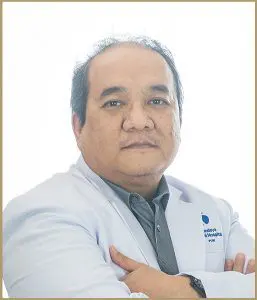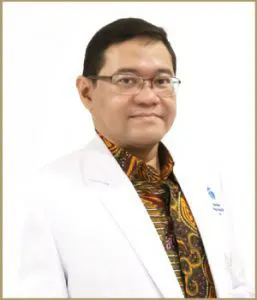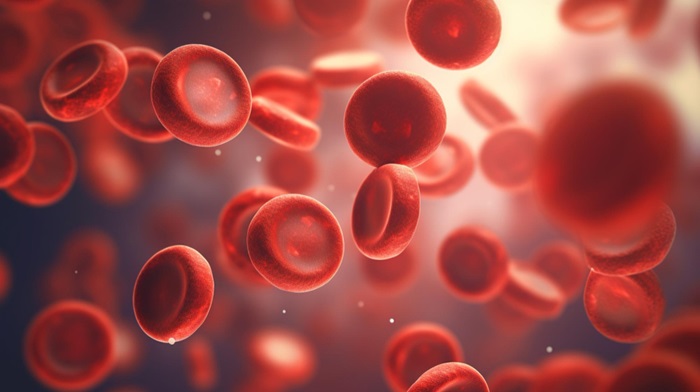Acute Myeloid Leukemia (AML) is a rare cancer that affects the bone marrow and blood. This aggressive type of cancer can be life-threatening if not properly addressed and treated.
AML typically affects people aged 60 and above, but it can also occur in adults and children. Today, new treatments are available to help AML patients live longer.
Contents
Causes of Acute Myeloid Leukemia
The exact cause of AML is still unknown. However, experts believe that this type of cancer occurs when specific genes or chromosomes mutate, resulting in abnormal blood cells.
This genetic change can occur:
- During the patient’s lifetime due to something altering their DNA.
- If the patient inherits a genetic disorder that increases the risk of AML.
- If changes occur in specific genes in the sperm or egg cells of the patient’s biological parents.
Normally, the bone marrow produces the number of blood cells and platelets the body needs to function. However, in AML, the bone marrow produces abnormal myeloid cells called myeloid blasts (myeloblasts).
These myeloblasts do not behave like normal blood cells. Normal blood cells follow genetic instructions that tell them when and how quickly to multiply and grow. As cells age, they die to make room in the bone marrow for new ones.
Myeloblasts do not follow these instructions. These abnormal myeloid cells multiply uncontrollably and do not die. The constant stream of myeloblasts in the bone marrow reduces space for healthy blood cells.
Due to the lack of space, the bone marrow stops producing healthy blood cells. Without new healthy blood cells, the body lacks what it needs to function.
Additionally, as myeloblasts continue to multiply, they leave the bone marrow and enter the bloodstream, potentially spreading to other parts of the body, such as the central nervous system and even the brain.
Symptoms of Acute Myeloid Leukemia
In its early stages, AML symptoms may feel like a cold or flu that won’t go away. Since AML is aggressive, patients will develop more pronounced symptoms, such as:
- Dizziness
- Easy bruising or bleeding (including nosebleeds and bleeding gums)
- Fatigue
- Feeling cold
- Fever
- Night sweats
- Frequent or persistent infections
- Headaches
- Loss of appetite
- Unexplained weight loss
- Pale skin
- Shortness of breath
- Swollen lymph nodes
- Weakness
- Bone, back, or abdominal pain
- Small red spots on the skin
- Non-healing sores or wounds
Treatment for Acute Myeloid Leukemia at RS Mandaya Puri
Mandaya Royal Hospital Puri is equipped with a Blood Cancer Center that offers comprehensive facilities and a medical team to treat AML.
AML treatments available at RS Mandaya Puri include:
1. Chemotherapy
Chemotherapy is a treatment that uses drugs to kill cancer cells in the patient’s body. It is the most common treatment for cancer because cancer cells grow and multiply much faster than most normal cells.
Mandaya also has a special chemotherapy room designed to treat blood cancer patients from early to advanced stages.
2. Targeted Therapy
Targeted therapy is a treatment that targets specific genetic mutations in cancer cells to prevent their growth. Doctors may recommend targeted therapy for recurrent AML or cases that do not respond to chemotherapy.
3. Radiation Therapy
Radiation therapy uses high-dose radiation to kill cancer cells. Doctors may recommend radiation therapy to treat AML that has spread to the nervous system or brain.
The radiotherapy machine at RS Mandaya Puri is the Linac Elekta Versa HD, a top-of-the-line radiotherapy tool that delivers precise radiation to cancer cells while minimizing damage to healthy tissue.
Blood Cancer Center Collaboration with Singapore
Every blood cancer case, including AML, at RS Mandaya Puri is discussed directly with the team at NCIS-NUH Singapore.
The collaboration between RS Mandaya Puri and NCIS-NUH Singapore helps determine the patient’s diagnosis and condition, evaluate treatment effectiveness, and choose the most suitable therapy or treatment plan.
This collaboration also allows patients to get a second opinion, which can help patients and families better understand the treatment they will undergo.
Medical Team at RS Mandaya Puri Blood Cancer Center
The medical team at RS Mandaya Puri’s Blood Cancer Center is capable of treating patients with AML. The team has extensive experience and specializes in treating blood cancer, including:
- Dr. Toman T.J Lumban Toruan, Sp.PD-KHOM
- Dr. Alvin Tagor Harahap, Sp.PD-KHOM
- Prof. Dr. Aru W. Sudoyo, Sp.PD-KHOM, FINASIM, FACP
These experienced doctors can perform chemotherapy, radiation therapy, and targeted therapy for AML treatment.
1. Prof. Dr. Aru W. Sudoyo, Sp.PD-KHOM, FINASIM, FACP


Consultant in Internal Medicine and Medical Hemato-Oncology, available at RS Mandaya Puri:
- Wednesday: 09:00 – 12:00 WIB
2. Dr. Toman T.J Lumban Toruan, Sp.PD-KHOM


Specialist in Internal Medicine, subspecializing in Hematology-Oncology, available at RS Mandaya Puri:
- Tuesday: 12:00 – 15:00 WIB
- Thursday: 12:00 – 15:00 WIB
3. Dr. Alvin Tagor Harahap, Sp.PD-KHOM


Specialist in Internal Medicine, subspecializing in Hematology-Oncology, available at RS Mandaya Puri:
- Wednesday: 18:00 – 20:00 WIB
- Saturday: 10:00 – 12:00 WIB
If you want to visit the Mandaya Blood Cancer Center for AML treatment, use the Chat feature via WhatsApp, Book Appointment, or the Care Dokter app, available on Google Play and the App Store, to simplify your visit, view queue numbers, and access more complete information.



